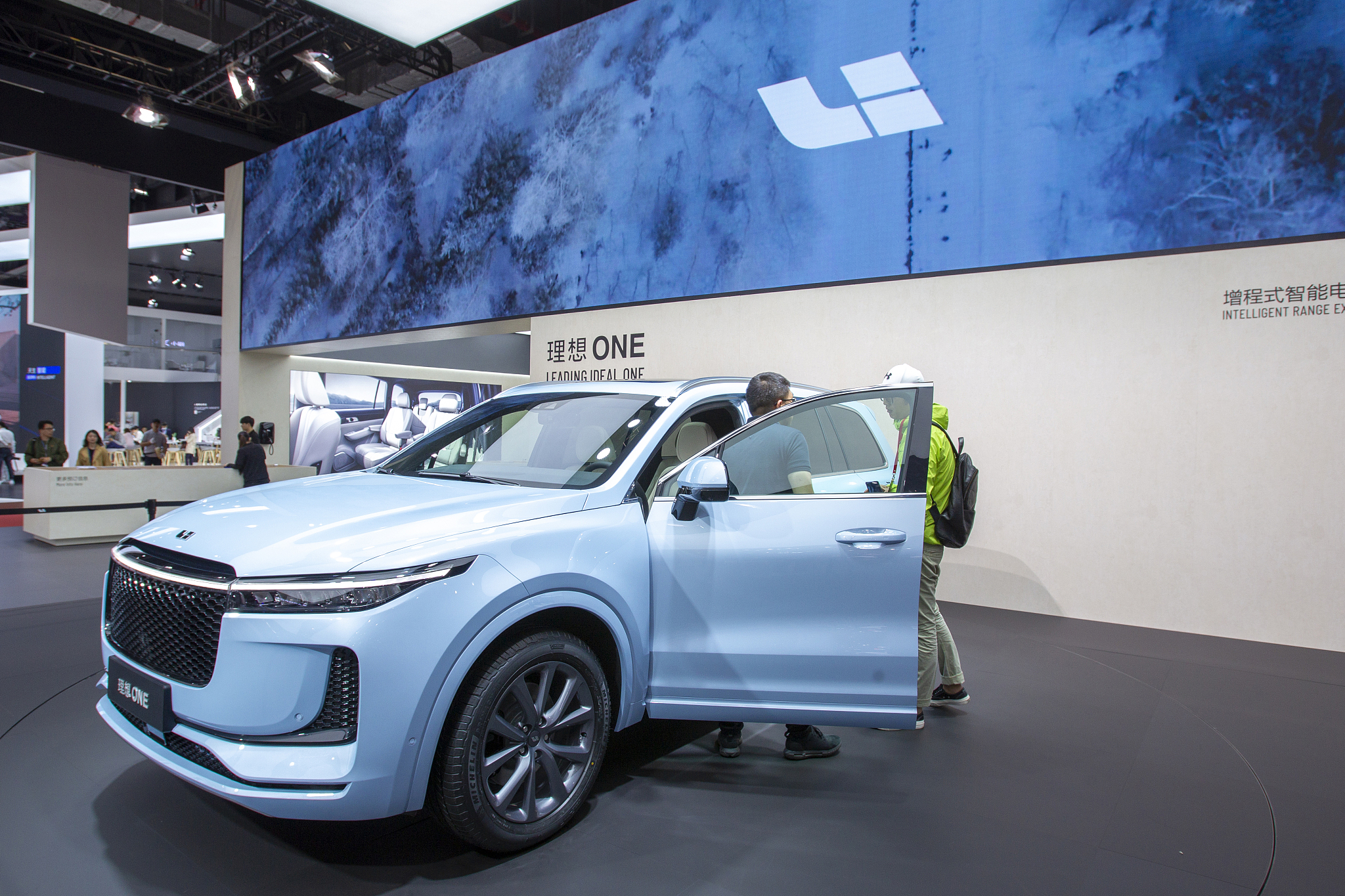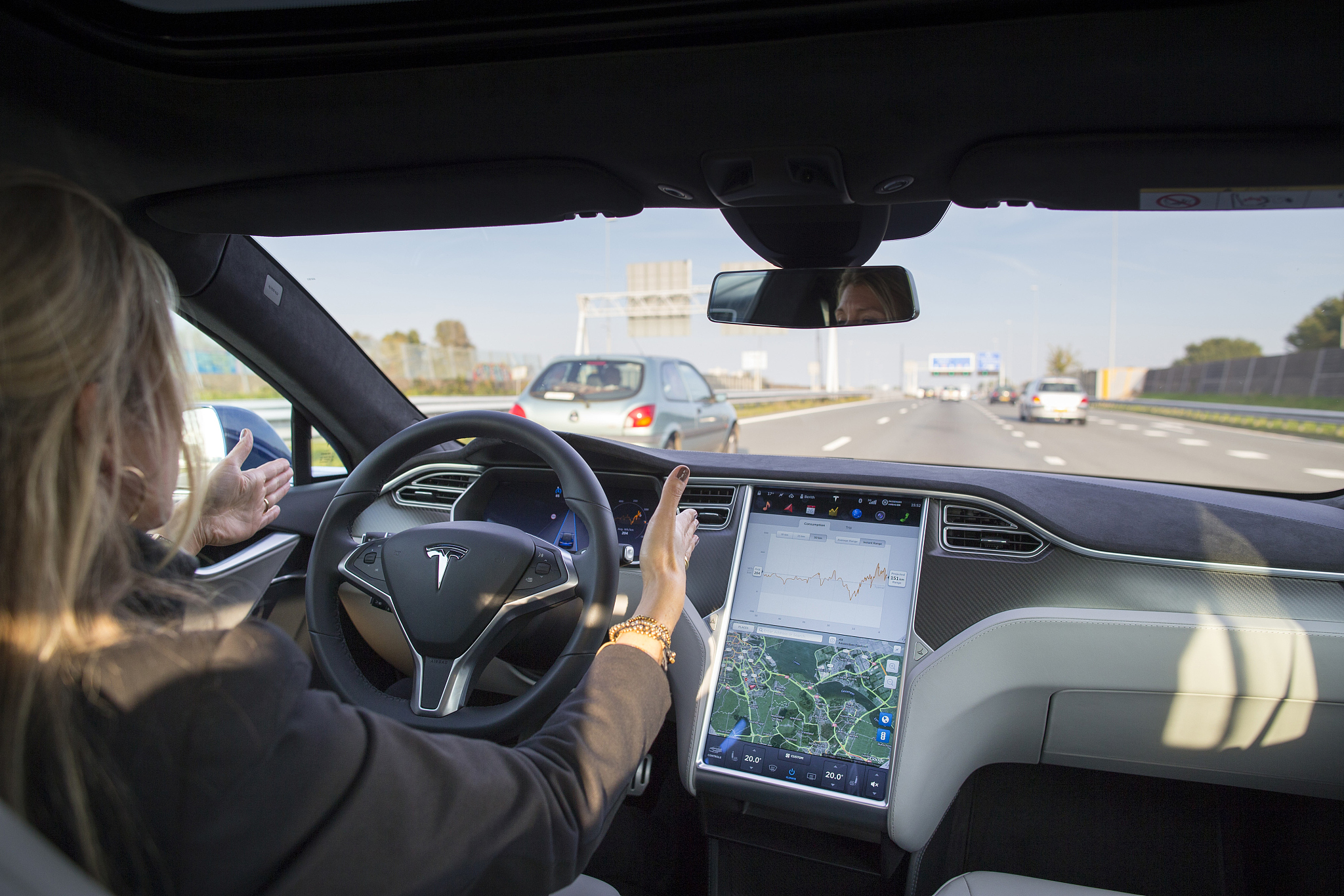04:28

Car chips are down. Carmakers are lost.
The pandemic has rewritten the rules for a multitude of industries. The automotive industry is no exception, particularly when it's on a swift shift toward smarter, electric vehicles (EVs). For the past century, pain has never hit closer to home than the past year, amid factory shutdowns, severe supply chain interruptions and decimated consumer confidence. Chips, the crop of automobiles in the 21st century, are a sore spot in this bust phase.
Amid the global doom of the auto industry, a few Chinese EV upstarts are making a wave, with the sales of Li Auto and XPeng surging by over 200 percent in July year on year. The bounce was partly actuated by the strong demand of the world's biggest automobile market for EVs as the country is recovering from the grueling pandemic, but more importantly by a secured supply of car chips.
China has been on a path toward fast semiconductor development. But AI auto chips didn't become tech darlings in China until recent years.
Over the years, China has witnessed fast development in AI algorithms and formulated friendly policies for electrification and smart manufacturing. "Chinese firms have overtaken many of their Western counterparts in AI-enabled system-on-chips," said Zhang Yufeng, vice president of Horizon Robotics, a Beijing-based startup engaging in the development of an AI computing platform, and the first Chinese company to mass produce AI processors for the auto industry.
Besides a rich access to capital, Chinese consumers have a natural penchant for new tech products, creating a vigorous EV market and thus leaving room for the application and development of AI auto chips. By 2025, China vows to make 20 percent of its annual car sales plug-in hybrids or battery-powered.

The Li One electric car from Li Auto is displayed at the 2019 Shanghai auto show, April 2019. /VCG
The Li One electric car from Li Auto is displayed at the 2019 Shanghai auto show, April 2019. /VCG
The booming EVs are pushing auto chips – the brains that power such cars – to the global spotlight. Because digital cars are heavily software-centered, all the timely updates of the software depend on the support of the AI computing platforms, Zhang told CGTN.
As autonomous driving is becoming a standard feature for EVs, automakers are striving to make their self-driving cars not just capable of navigating on the highways but also in local streets brimming with complex traffic conditions.
Auto manufacturers are keen to rev up the processing and computing power of AI chips. A number of automobile giants, from Volvo to General Motors, are gearing up to go all electric at some point in the future. Even Apple is mulling over an iCar as its next titan. This trend spurs silicon giants to foray into the automotive market, leading to intensified competition for AI auto chips.
Mobileye, a Jerusalem-based chip giant acquired by Intel in 2017, is known for its dominant position for providing chips that support advanced driver assistance systems. Nvidia, an American multinational that started with designing chips used in high-performance gaming, has processors with computing power normally seen in data centers for autonomous driving vehicles. Tesla, after its public breakup with Mobileye, started to build its own chips for its Autopilot features.

An employee drives a Tesla Motors Model S electric automobile, equipped with Autopilot hardware and software, hands-free on a highway in Amsterdam, Netherlands, October 27, 2015. /VCG
An employee drives a Tesla Motors Model S electric automobile, equipped with Autopilot hardware and software, hands-free on a highway in Amsterdam, Netherlands, October 27, 2015. /VCG
"Chinese automakers were at a disadvantage when it came to geographic proximity to suppliers," said Wang Kai, chief technology officer of Li Auto. Since most Chinese carmakers used to source their chips from the U.S., European or Japanese chipmakers, it takes much longer for Chinese carmakers to get the chips and make timely updates.
"A minor update in a car's electronics systems where certain chips are used would cost us two months, from talking with the supplier, to signing a contract, to testing," Wang told CGTN.
For want of the most effective software performance in these "drivable computers," carmakers need immediate response and first-hand information from their chip suppliers.
In its latest move, the company announced that it would equip its 2021 Li One, an extended-range electric passenger vehicle, with two autonomous driving chips from local supplier Horizon Robotics, instead of Mobileye's EyeQ4 chip, which was used in its 2020 model.
Though Mobileye offers mature solutions, they are nonetheless "black box" solutions that do not allow carmakers to plug in their own software, said Wang. On the other hand, Horizon Robotics' chips are open for collaboration, giving access to automakers to continuously upgrade the software and features.
It's vital that carmakers maintain close contact with chip developers so that chips can better run algorithms in various sensors as well as tracking driving scenes. Li Auto's cooperation with Horizon Robotics, which started in April, has produced results.
"Now a crescendo to system-on-chips only takes a few hours to complete," Wang noted. "One hundred years ago when the combustion engine was the core of the car, carmakers were scrambling to lower costs. Now with the strong demand for smart cars, technical efficiency has become the mainstream standard."

